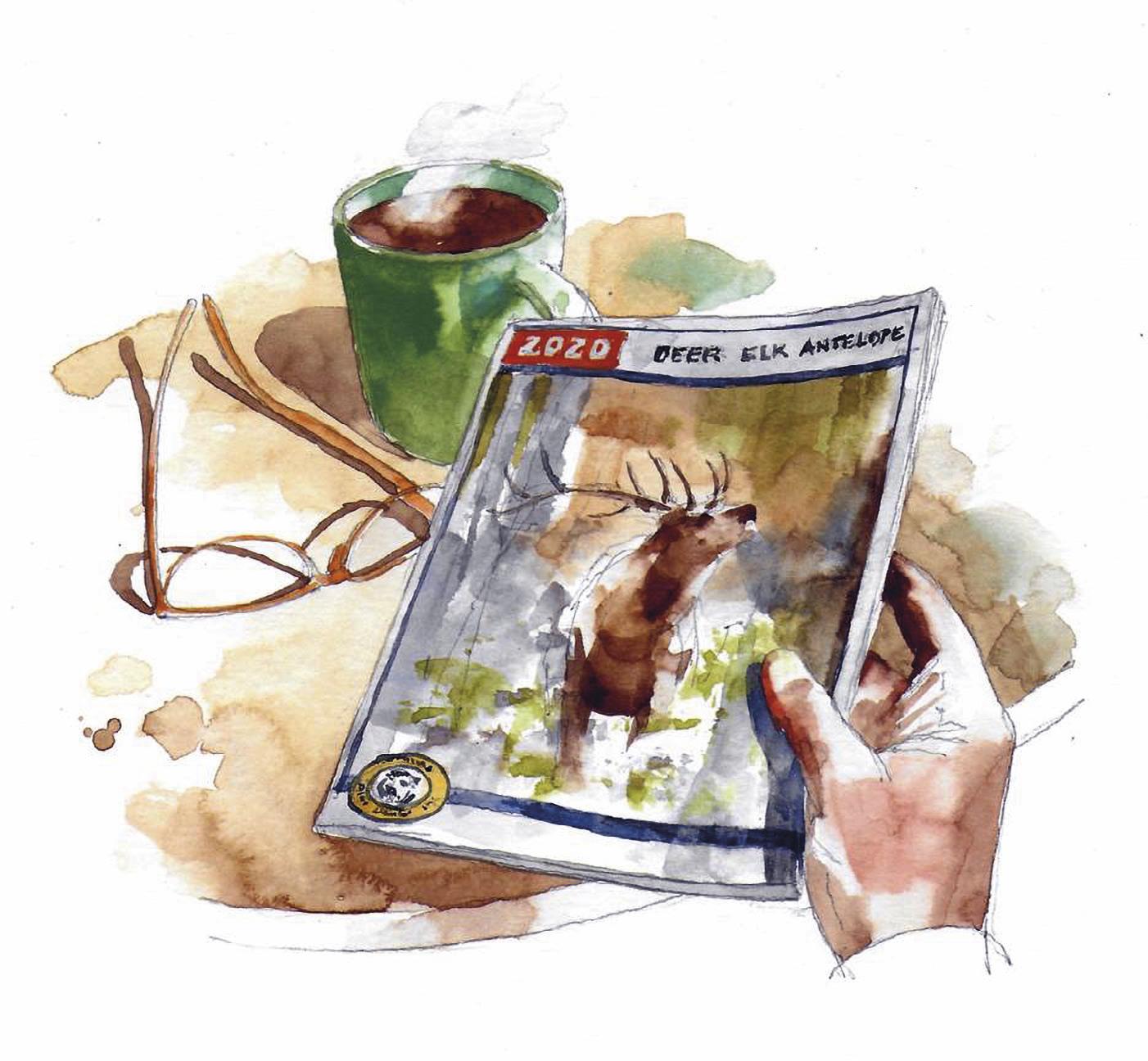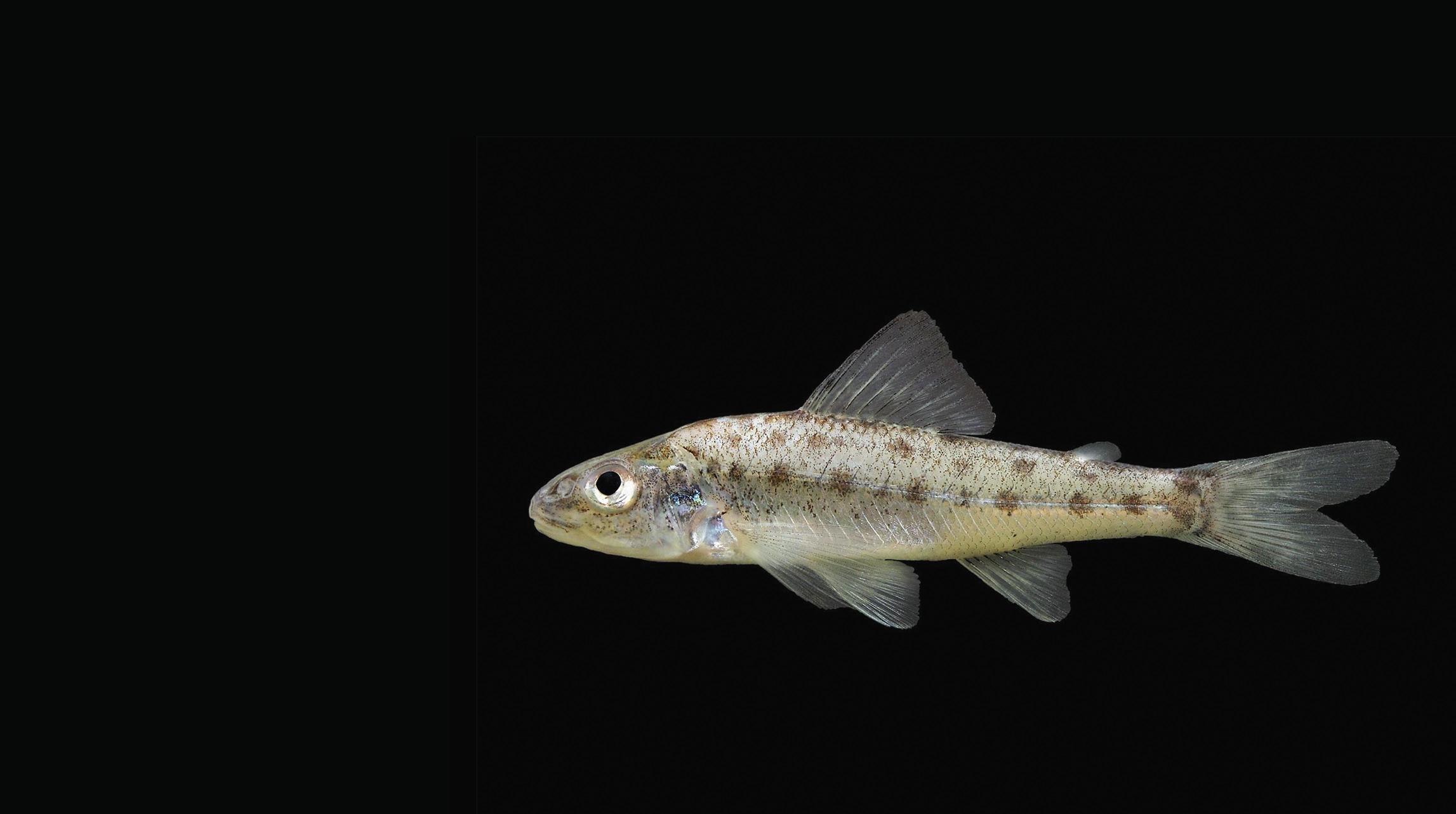LETTERS Inspirational essay I received my July-August issue today and read every article. My favorite was “My Salmonid Search.” The writer did a great job telling of his adventures while weaving in important conservation messages about coldwater fish. It made me want to do my own salmonid search and help those species any way I can.
birds’ declining populations in Montana. How much disturbance is caused by a 10-person team of wildlife biologists setting mist nets across streams, herding ducks downstream, capturing migrating birds, and then physically handling them? Your story suggests such disruptive “duck recaptures” happened not once but many times in 2019. Are these practices contributing to the harlequins’ welfare?
Jess Carlson Missoula
Too many caught? In the essay “My Salmonid Search,” the author wrote that, while fishing the Big Hole, he released back into the river “probably [his] 20th eight-inch grayling of the day.” Then, possibly recollecting the “fragility” of Arctic grayling that he’d mentioned earlier, the author stopped fishing, stating that he “didn’t need to catch any more.” I question why catching and releasing just one grayling wasn’t enough. Many fish that anglers catch and then return to the water end up dying, especially in August, when the author was fishing. So several of the fragile Arctic grayling that he caught and released likely died. This article illustrates a thoughtless negative behavior that affects a fragile fish species at high risk of elimination from our Montana waters. Don Lodmell Hamilton
Jim Olsen, FWP fisheries biologist for the Big Hole River, replies: I’m pleased to see concern for Arctic grayling both by the essay’s author and Mr. Lodmell. The “fragility” in the essay refers to the population, not individual grayling. Yes, the mortality rates of released salmonids can be extremely high when water temperatures exceed 70 degrees and fish are played to exhaustion—which is why FWP closes the Big Hole to hot afternoon and
Joe Kerlavliet Cascade
evening fishing in late summer— Thanks for the well-thought-out but otherwise it is more like 5 to 10 perspective on the “I’ve got this” percent. Providing fishing opportu- attitude that’s in many men’s nity is an important aspect of DNA, including my own. Refisheries conservation. For some cently I went trout fishing with a people, just knowing that fish are buddy on a stream near St. Regis. there is enough. But others need to As he and I departed camp for catch fish to maintain both their different stream sections that connection to the fish and desire to morning, he said, “Be careful.” help conserve the population. It’s a “I’ll be fine,” I replied. Not long treat to catch grayling on the Big afterward I ended up stepping Hole. Even die-hard trout anglers into a very deep hole in the creek think it’s cool to catch them. That’s and was almost sucked into a log one of the reasons so many anglers jam downstream. I easily could support grayling conservation. have drowned. I’ll be more cautious on the next outing, and maybe invite my buddy to fish We don’t got this I was pleased to see your Sketch- with me instead of going our book essay about how men think separate ways as we usually do. they don’t need to be as careful as they should be (“I’ve got this,” July-August). We lost two wouldbe-hero fathers trying to rescue their families from the Spokane River on the weekend before the Fourth of July. Their family members were wearing life jackets, but they weren’t. Sad. Your admonitions were right on. Dick Thiel Spokane, WA
Chris Hammond, FWP nongame wildlife biologist in Kalispell, responds: When biologists study any bird species, including harlequin ducks, the animals usually need to be handled. That’s the only way we can band birds to learn where they winter and breed, and thus help protect those critical habitats. All FWP research methods are required by the Animal Welfare Act to undergo substantial review from an International Animal Care and Use Committee before we do any field Mike Burke work. The committee includes a vetFWP Budget Analyst erinarian; a practicing research sciHelena entist; a member not affiliated with the organization doing the research; Is handling harmful? and an ethicist, lawyer, member of Your report on the “grim future” the clergy, or other nonscientist who of harlequin ducks (“Grim Fu- provides a layperson perspective. ture for a Festive Bird?” Novem- Occasionally a bird dies from hanber-December, 2019) names dling stress—though we’ve never lost “disturbances by backpackers a harlequin due to overhandling— and other mountain visitors” as but almost all survive and conone of the causes of the beautiful tribute to the scientific knowledge we use to conserve bird populations.
EDITOR’S NOTE: COVID-19 restrictions involving social distancing may affect outdoor activities in Montana this fall. Please check fwp.mt.gov or mt.gov for information about hours, capacity, and other details before making plans. Also note that the Centers for Disease Control recommends greater social distancing (and the use of face masks) than shown in several photos in this issue that were taken before the pandemic began.
2 | SEPTEMBER–OCTOBER 2020 | FWP.MT.GOV/MTOUTDOORS
CORRECTION In the article “Blaming the Birds” (May-June 2020), the Missouri River fly-fishing guide quoted on page 43 is named Brian Scott, not Mike Scott.








